Zeynep Birsu Cincin
Professor of Medical Biochemistry

Aim and Scope
Journal of Cancer Therapy and Research (ISSN: 2583-6552) (H-Index: 2) (Impact Factor: 3.2) is an open-access, peer-reviewed journal that aims to publish high-quality articles in cancer biology and research. This journal offers an open- access platform to the authors to publish their research outcome and so facilitate in promoting Cancer and Oncology research.
Journal of Cancer Therapy and Research publishes articles including research papers, reviews, editorials, short communications, case reports. Scope of the Journal involves Molecular Pathobiology, cellular pathobiology, tumor, and stem cell biology, metastasis, tumor suppressor, cancer pathology, cancer cytology, cancer endocrinology, clinical aspects of breast cancer, Lung cancer, genitourinary cancer, gynecologic cancer, ovarian cancer, prostate cancer, bone cancer, colorectal cancer, Cancer Surgery, Cancer genomics, Antitumor agents, Screening and Therapies including Chemotherapy, Surgery, Radiation Therapy, Immunotherapy, Gene Therapy, etc.
The aim of this journal is to provide a platform for scientists and academicians all over the world to promote, share, and discuss various new issues and developments in several areas of Cancer Prevention.
Submit manuscript as an e-mail attachment to the Editorial Office at cancer@genesispub.org or cancer@genepub.org
Ownership and Management
Journal of Cancer Therapy and Research is owned and published by Genesis Scientific Publications, a privately held academic publishing company based in Chandigarh, India.
Genesis Scientific Publications is responsible for the journal’s production, online hosting, digital archiving, and distribution.
The journal maintains full editorial independence. All editorial decisions, including peer review, article acceptance, and publication, are made solely by the editorial team in accordance with international publishing ethics and best practices.
Contact: contact@genesispub.org
Publisher Website: https://www.genesispub.org/
Responsible Person: Editor-in-Chief: Adel W Ekladious
Indexing and Abstracting:
© 2023 Genesis Scientific Publications | Open Access | Licensed under CC BY 4.0

Professor of Medical Biochemistry

Project Manager, World Health Organization, Denmark

Professor, Department of Head and Neck/ Plastic and Reconstructive Surgery, Roswell Park Cancer Institute, Buffalo, New York

Postdoctoral Researcher, Children Research Institute, UT Southwestern Medical Center, Dallas, Texas, USA

Assistant Professor, Department of Radiation Oncology, Kidwai Memorial Institute of Oncology, Bangalore, India

Oncologist and Professor of Internal and Familiar Medicine, Medical Oncology Department, Instituto Mexicano del Seguro Social, Mexico

Post Doc Researcher, Molecular Stem Cell Biology Lab, IHB Department, Leiden University Medical Center, Netherlands

BCNet International Working Group, IARC/WHO, Lyon, France

Professor, Department of Obstetrics and Gynecology, University, Faculty of Medicine, Cairo University, Egypt

Clinical Associate Professor, Department of Medicine, University of Western Australia, Australia

Department of Cell Biology, Developmental Biology, Immunology, University of Orleans 45100, 556 Rue Isabelle Romee 45640 Sandillon, France

Professor of Cancer Biology, Department of Biochemistry, Kafrelsheikh University, Egypt

Assistant Professor, Department of Internal Medicine, Section on Hospital Medicine, Wake Forest School of Medicine, North Carolina, USA

Institute of Diabetes and Regeneration Research, Helmholtz Zentrum München, 85764 Neuherberg, Germany

Professor of Physical Chemistry, Nano Science and Nanotechnology at Department of Chemistry, Faculty of Science, Tanta University, Egypt

Faculty of Medicine at the State University of Londrina, Brazil

President/Chief Operating Officer and Professor, Weil Institute of Critical Care Medicine, California, USA

Chief of professional education, Patton State Hospital; University of Southern California, Riverside, US

Emeritus Member of American Society of Clinical Oncology (ASCO), Argentina

Assistant Professor in the Cancer Biology Program at the University of Hawai‘i Cancer Center, Honolulu, HI, USA

PhD in Clinics and Cancer Biology (Breast Cancer & Glioblastome Cell Invasion)

Professor of Medical Biochemistry

Founder & CEO -Multi-national Medical & Wellness Enterprises

Cancer Researcher at Queen Elizabeth Hospital

Introduction: Many breast cancer ..

Hepatocellular carcinoma (HCC) is a ..

Background and aim Despite ..

Hepatocellular carcinoma (HCC) is ..

Hepatocellular carcinoma (HCC), a major ..
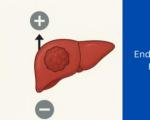
Hepatocellular carcinoma (HCC) is ..

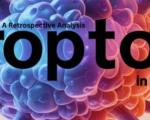
Hepatocellular carcinoma (HCC) is ..
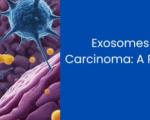
Hepatocellular carcinoma (HCC), a ..
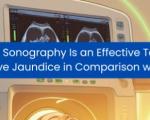
Objectives: To determine the diagnostic ..
Genesis Scientific Publication is a self-governed as self-financed organization which aims not to receive any kind of external support from institutions/organization. Hence, the processing charges received from the authors and some academic/corporate sponsors are the sole means of the operation of manuscripts. And for maintenance, the fee is being received namely “Handling Fee”.
Thus, our group is like an open book which can be accessible by anyone who is passionate about journals with any chargeable fee i.e. it’s absolutely free for readers. However, authors are supposed to pay the handling fee which is required for processing of articles only and no other fee will be charged. And there is a provision made for authors i.e. the payment will only be done after the publication of the manuscript. It provides immediate open access to its content on the principle that making research freely available to the public supports a greater global exchange of knowledge and the charges cover the costs of turning a manuscript into a finished article, and also consists of promotion and distribution fee. Thus, this fee varies accordingly with the extent or type of colored effects, complex equations, extensive editing and extra elongation of no. of pages of the article etc.
Moreover, no one can change one's mind as it keeps on changing so authors are responsible for paying the 70% of the manuscript handling fee once the article is submitted and accepted in the journal.
The standard processing fee of journal for all type of articles is mentioned below:
|
MANUSCRIPT TYPE |
ARTICLE PROCESSING CHARGES |
||
|
USD |
EURO |
GBP |
|
|
ALL ARTICLE TYPES |
700 |
648 |
557 |
Genesis Journals is committed to maintain the best level of sincerity within the content published in the journal.
Genesis Journals following International Committee of Medical Journal Editors principles on the way to affect acts of misconduct thereby committing to research allegations of misconduct to make sure the purity of research.
The research being reported in articles must be conducted in an ethical manner and must suits all relevant legislation. Authors must refrain from engaging in scientific misconduct.
Authors should present their results honestly and clearly without any fabrication, falsification, or any kind of inappropriate data manipulation. The authors should strive to explain their methods clearly and unambiguously must guarantee the originality of their material and their findings are often confirmed by others.
Authors should provide appropriate acknowledgement and authorship. All authors must have significantly contributed to the research. Authors must refrain from deliberately misrepresenting a scientist’s relationship with published work. Contributors who have made fewer substantial contributions to the research or to the publication are often acknowledged but shouldn’t be identified as authors.
Authors must tell the journal once they have an immediate or indirect conflict of interest with editors or members of the editorial board or International scientific committee.
Genesis Journals employ a double-blind review process. All contributions are going to be initially assessed by the editor. The editor is solely and independently liable for selecting, processing, and deciding which of the articles submitted to the journal meet the editorial goals and will thus be published. Each paper selected is shipped to two independent peer reviewers who are experts in their field and ready to assess the exact qualities of the work. The editor is liable for the final decision regarding whether the paper is accepted or rejected.
The decision to publish a paper will always be measured in accordance with its importance to researchers, practitioners, and potential readers. Editors should make unbiased and independent decision.
The editor’s action and decision are constrained by ethical and legal requirements like its own governing infringement of copyright and plagiarism.
Editors who make final decisions about manuscripts should withdraw from editorial decisions if they need conflicts of interest or relationships that pose potential problems concerning articles into account. The responsibility of the ultimate decision regarding publication are going to be attributed to an editor who doesn’t have any conflicts of interest.
The members of the editorial board ,chief editor, scientific committee, and reviewers shall withdraw in any case of conflict of interest concerning an author or authors, or the content of a manuscript to be evaluated.
The Journal will avoid all conflict of interest between authors, reviewers, and members of the editorial board and International scientific committee.
Each article submitted is the responsibility of one member of the editorial board or of the international scientific committee, who undertakes to have it evaluated by two peers who are experts in the field and who evaluate it anonymously.
Reviewed articles are treated confidentially by journal editorial board members and reviewers
In no case shall a journal and members of the editorial board encourage misconduct of any kind.
Members of the Journal editorial board shall attempt to prevent misconduct by informing authors and reviewers about the moral conduct required of them. Members of the editorial board, scientific committee, and reviewers are asked to remember of all kinds of misconduct to spot papers where research misconduct of any kind has or seems to possess occurred and affect the allegations accordingly.
Where appropriate, journal editors encourage authors to share the info that supports research publications. Editors encourage authors to state the supply of their data during a data statement attached to the submitted article. With the info statement, authors are often transparent about the info they utilized in the article.
All reviewers must know and keep in mind the editorial policy and publication ethics and malpractice statement.
Genesis Journals requires potential reviewers to have scientific expertise or significant work experience in a relevant field. They must have acquired recognized expertise by their peers and recently conducted research work. Potential reviewers should provide personal and professional information which is accurate, and which gives a fair representation of their expertise.
All reviewers must likewise withdraw if they feel their evaluation of the material will not be objective or they know they are unqualified to evaluate a manuscript, or if they understand themselves to be in a conflict of interest.
Reviewed articles are treated confidentially by reviewers and members of the editorial board and international scientific committee.
Reviewers should point out relevant published work which has not yet been cited in the reviewed material. Reviewers are asked to identify papers where research misconduct has or seems to have occurred and inform the editorial board, which will deal with each case accordingly.
The copyright on the original content and intellectual property shall remain with the authors. The authors grant, in exchange for publication in the Journal exclusive licensing of first publication, giving the Journal the right to produce and disseminate the contributions, whether collectively with other articles or individually, and in all media, forms known or to come.
The authors shall guarantee the originality of their material and shall not publish any text that would appear to contradict. Plagiarism and false or intentionally misleading declarations constitute behaviour that is at odds with the ethics of scientific publication.
No significant part of the article shall have been previously published either as an article or as a chapter or be under consideration for publication elsewhere.
If the authors intend to reproduce their article in other publications or for any other purpose and by any means, they must obtain the written authorization of the editorial board.
Articles are published in open access. There are no associated subscriptions or pay-per-view fees. All material is made available under the terms of the Creative Commons Attribution-Noncommercial-No Derivatives 4.0 International license (CC BY-NC-ND 4.0).
Journal’s content is archived in several copies by open edition, a publisher of online, free-access books and journals longer published, open edition maintains free access and will continue to make all archives available online.
The names of authors, reviewers, and collaborators along with the names of their organizations and institutional affiliations, which the Journal may record during its operations, shall remain confidential and shall not be used for any commercial or public ends beyond the signature of the articles published. However, this information may sometimes be required by government grant-giving bodies. The secrecy of the peer review selection shall be maintained when transmitting this information. A list of the names of authors, reviewers, and collaborators and the names of their organizations and institutional affiliations shall be sent with no explicit links between those named.
Genesis Journals may use these lists for its own purposes of request articles, collaboration, or other contributions, notably through occasional e-mails.
The authors retain the copyright of the content and grant the magazine the right to be the first to publish the article. This publication will be made under license, which allows others to share and reproduce the contents as long as the original authorship in the magazine is acknowledged and quoted.
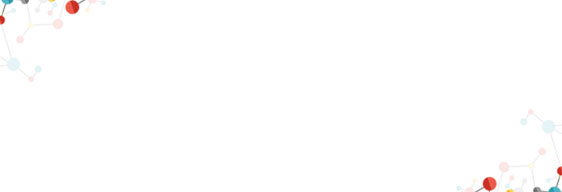

Objectives: To determine the diagnostic accuracy of CBD Ultrasound in evaluation of obstructive ..

Hepatocellular carcinoma (HCC), a highly aggressive malignancy, relies on intercellular ..

Hepatocellular carcinoma (HCC) is characterized by dysregulated cell death pathways, with ..

Hepatocellular carcinoma (HCC) is characterized by aberrant protein homeostasis and metabolic ..

Hepatocellular carcinoma (HCC) is characterized by metabolic reprogramming and mitochondrial ..

Hepatocellular carcinoma (HCC), a major global cancer burden, is increasingly linked to gut ..
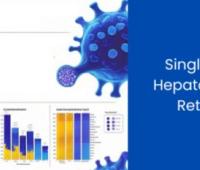
Hepatocellular carcinoma (HCC) is characterized by profound cellular heterogeneity, driving ..
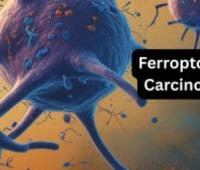
Hepatocellular carcinoma (HCC) is a highly aggressive malignancy with limited therapeutic options, ..
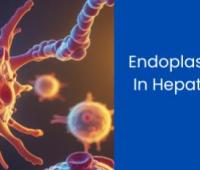
Hepatocellular carcinoma (HCC) is characterized by aberrant protein homeostasis and metabolic ..
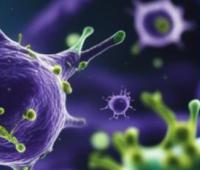
Background and aim Despite significant advancements in early detection and treatment of ..

Benign prostatic hyperplasia (BPH) is a prevalent non-cancerous enlargement of the prostate, mainly ..

Introduction: Many breast cancer patients benefit from appropriate oncological therapies, but they ..
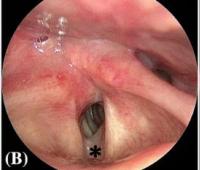
Laryngeal cancer poses significant challenges in treatment due to its propensity for recurrence, ..
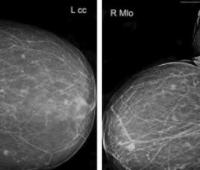
Kidney disease frequently occurs among individuals diagnosed with cancer. Given the high incidence ..
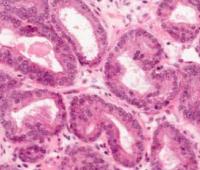
Introduction The prevalence of the prostate cancer (PCa) among men in 105 countries ranks ..

This article provides a systematic review of the effects of high-dose ozone therapy as a ..

Breast cancer is a severe health concern in South Asia, compounded by fast-rising incidence rates ..


Breast cancer remains a major global health concern with limited treatment options. Metastasis and ..
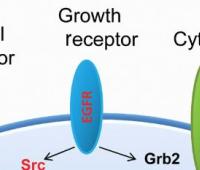
Epidermal growth factor receptor (EGFR) signaling plays an important role in cancer by regulating ..

Introduction The Ligation of the superior mesenteric axis is prohibited during colon cancer ..

At normal state the electrocardiogram presents for each cycle a sequence of five waves denoted with ..
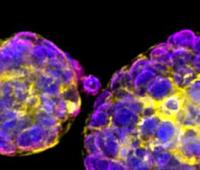
Signal transduction pathways play a central role in cancer development and progression by ..

This abstract attempt to answer some very important questions about the origin of life on Earth ..
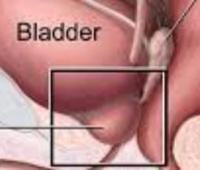
54-year-old Cushingoid male with newly diagnosed prostate cancer was seen in consultation. He had ..
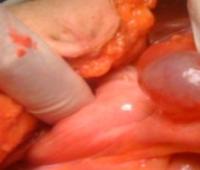
Polycystic péritonéal mesothelioma (MPP) is a rare and benign condition. Its ..
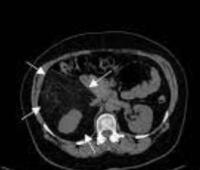
Introduction Hibernoma is a rare tumor that develops from fat cells. It is a benign tumor that ..
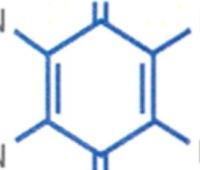
This abstract attempts to explore if genetically inherited diseases could be prevented before ..

44 y/o Puerto Rican female patient with right breast invasive ductal carcinoma, poorly ..
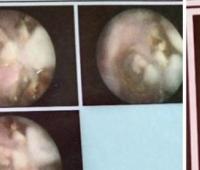
Cholesteatoma is a well differentiated, non-neoplastic, keratinizing squamous epithelial growth of ..

Squamous cell carcinoma constitutes approximately 95% of penile cancer. Sarcomas of penis are rarer ..

Colorectal cancers (CRC) are common cancer globally. The commonest symptoms were rectal bleeding ..

Primary brain tumors are rare and uncommon tumors comprising only 1.6 percent of cancers, although ..

Background: Cancer chemotherapy is known to be accompanied by adverse drug reactions (ADRs). There ..

Doxorubicin is an anthracycline group of antibiotics that is frequently used in the treatment of ..

Introduction: The oral cancer includes various kinds of malignant neoplasms developed in the mouth. ..

Breast cancer is a non-communicable disease which becomes the second leading cause of death all ..

Hepatoduodenopancreatectomy (HDP) is a major intervention and is recommended in surgery for biliary ..
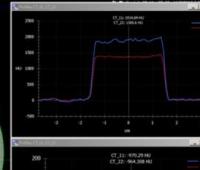
This study sought to evaluate scanning parameters for Computed Tomography (CT) simulations and its ..

There is no cure for covid-19. Therefore, medical workers get easily trapped in defensive medicine, ..
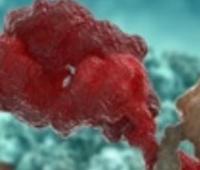
Abstract Paratesticular liposarcoma, a rare pathological entity. They usually mimic the inguinal ..
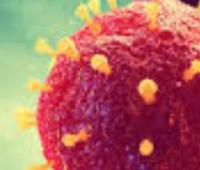
Abstract Coronavirus disease 2019 (Covid-19) had tremendous effects on various health care ..

Carcinoma cervix is a common malignancy affecting a vast majority of women, especially in low- and ..
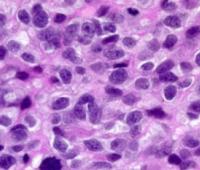
Abstract Immunologic tolerance to an infiltrating tumor cell bed is a very active process of ..
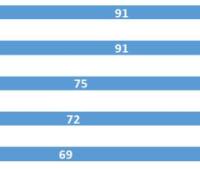
Abstract HPV (Human papillomavirus) infects epithelial cells, and their replication cycle is ..
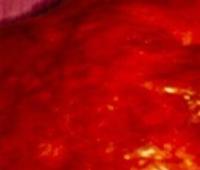
Abstract The hemorrhage is one of serious complications of hepatic tumors It can have two ..